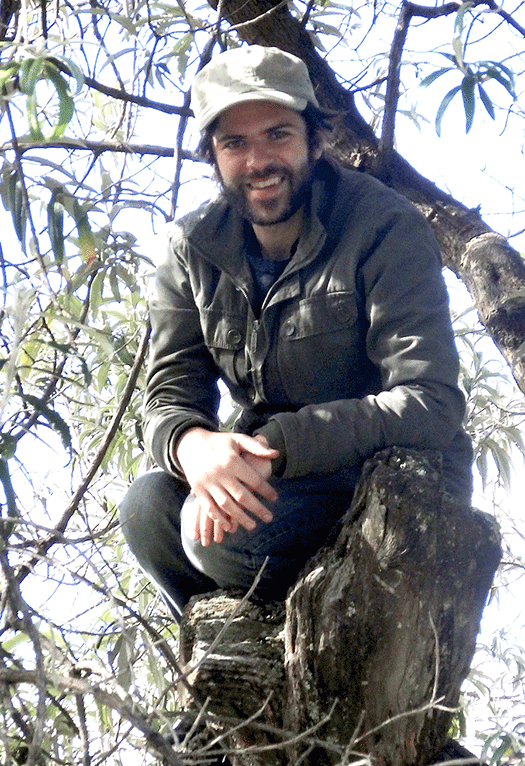Faculty Spotlight: Dr. Joshua Aprile Shapero
April 7, 2020

Dr. Joshua Aprile Shapero is Assistant Professor in the Department of Anthropology. Dr. Shapero's work focuses on the relationship between human culture and the natural environment, specifically with Ancash Quechua speakers in the Peruvian Andes.
What region or population of Latin America or Iberia do you study? Why?
I work with Ancash Quechua in central Peruvian Andes, specifically in the community of Huaripampa, in the Cordillera Blanca mountain range, in the department of Ancash. I became interested in the Ancash Quechua language because of its significant difference from Southern (Cuzco/Ayacucho) Quechua, which is often perceived as "pure" or "original" Quechua, and because of the way that the Ancash Quechua language reflects and enables Andean environmental practices and knowledge.
What has been your path to becoming a professor?
After completing my doctoral degree in Linguistic Anthropology at the University of Michigan, I worked for a year as a postdoctoral researcher on a project at the University of Michigan Institute for the Humanities' Humanities Collaboratory, and then for a year as an adjunct instructor in the Department of Anthropology at the College of William & Mary.
What motivates you in your current work/research?
My current research is motivated by a push towards understanding why humans in different times and places orient to the world around them in such different ways, and towards understanding the real stakes of such differences. For example, we may think of the world as neatly divided into pristine, natural spaces and interrupted unnatural spaces, we may view landscapes as societies of living beings, many of whom may be ancestors, or we may approach the environment as a collection of resources that ultimately must be evaluated in economic terms. My current research hopes to show that these differences are not merely a matter of arbitrary symbols, historical accident, local color, social convention, or the rationalization of material preoccupations, but rather are intimately bound up with other dimensions of human life that are usually thought of us as quite separate from our views on the environment. I am most interested in the dimensions of abstract cognitive habits such as spatial processing, the grammatical patterns of language, and the spatiality of the habitual routines that shape social life. All of these are variable across cultures, and the aims of my research are to trace these differences onto the topography of environmental thought and to identify the places of practical consequence that emerge on the resulting map.
Who is a Latin American/Iberian role model that inspires you?
I owe my ability to conduct research in the Ancash Quechua language and with the people of Huaripampa to César Vargas Arce, an Ancash Quechua educator, writer, musician, organizer, and activist from Pichiw (Conchucos). César has been a patient and insightful teacher not only to me but also to a number of other anthropologists and linguists working in the region. He also has mentored numerous children as the Quechua instructor in the Intercultural Bilingual Education program in the local school in Huaripampa. My mind has been indelibly marked by the scenes I witnessed of César helping these children to connect their academic education with the language they spoke at home, and patiently addressing parents' concerns about their children's future as citizens in a state that has historically discriminated against speakers of indigenous languages. In the moments in which my own motivation has flagged, César has been there, both in memory and on the phone, to remind me of the social and historical value of the fight for education in and about Quechua--what he calls "attacking from all sides"--and to remind me that Quechua speakers overcome much more difficult obstacles every day they continue to speak their language, and every time they create time and space in their lives to make pilgrimages or offerings to mountain deities.
Parting words for young scholars:
My advice to young scholars working in Latin America is first of all to learn the language of the people you are working with. If you study Spanish, realize that the term "Spanish" masks a great diversity of communicative styles and ideologies. If you study an indigenous language, make the effort to learn it among the people who speak it. A language is a way of life.
